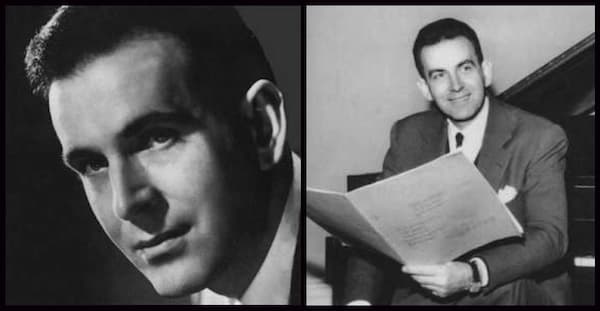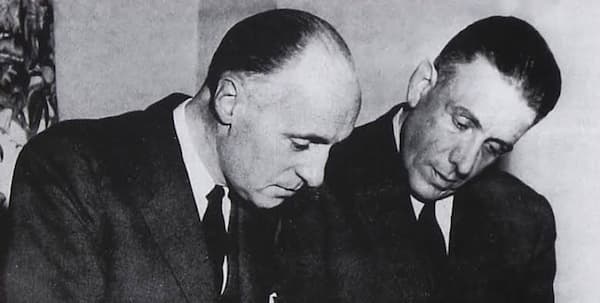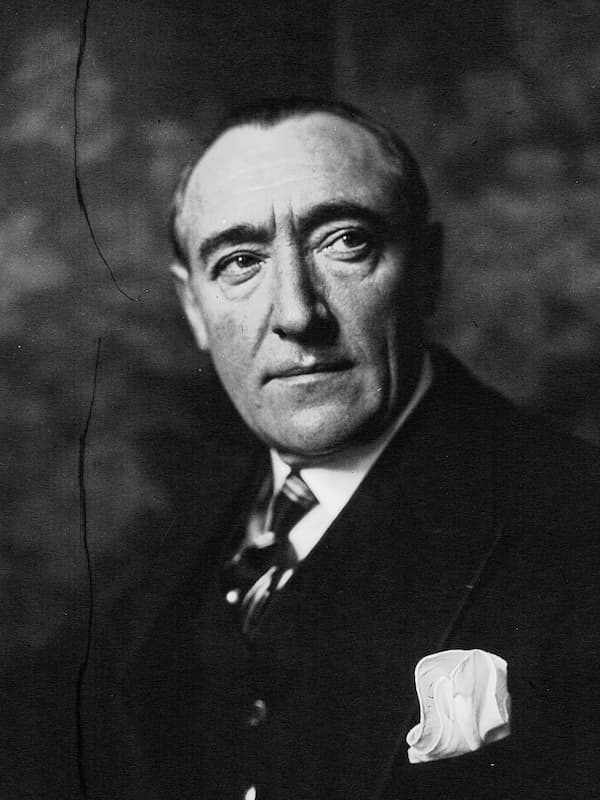Frequently described as a “golden baritone,” Gérard Souzay is remembered as one of the great interpreters of the French mélodie. His voice had a distinctive and smooth quality that allowed him to navigate the emotional and dynamic range of the French mélodie with exceptional ease. He devoted almost as much time to German lieder, and his flexible and slender baritone was “an ideal instrument for a singer of such highly developed sensibility.” His recordings make a significant contribution to 20th-century singing, and he “has earned the title of one of the greatest lyrical baritones of his age.”
Claude Debussy: 3 Melodies (Gerard Souzay, baritone; Dalton Baldwin, piano)
Gérard Tisserand

Gérard Souzay
Born on 8 December 1918 in Angers as Gérard Tisserand, he later adopted the stage name “Souzay” from a village on the river Loire. His father was an army officer, and his mother was a nurse, but they both had lively musical interests. In fact, his father was a cellist and his mother a singer. They had actually met at the premiere of Debussy’s Pelléas in 1902, and six months later they were married. His two brothers and his older sister, who appeared professionally as Geneviève Touraine, were singers as well.
The piano in their home was called “Pelléas”, and Gérard studied piano as a boy. He moved to Paris with his mother at the age of 10, and after completing his general education, he decided to study philosophy with the aim of becoming an author. However, at the age of 18, he was overheard singing by Pierre Bernac, a friend of the family, who urged him to develop his vocal potential.
Gabriel Fauré: La bonne Chanson, Op. 61 (Gerard Souzay, baritone; Dalton Baldwin, piano)
Pierre Bernac

Pierre Bernac and Francis Poulenc
Pierre Bernac was a known interpreter of the French mélodie, and he had a close artistic association with Francis Poulenc. In fact, Poulenc wrote 90 songs for Bernac during a musical partnership that lasted 25 years. Bernac was deeply connected with the French art song tradition and he suggested that Souzay should study privately with him for six months. Souzay made fantastic progress, and he entered the Paris Conservatory in 1940.
Under Bernac’s guidance, Souzay honed his technique and developed a deep understanding of the expressive subtleties that characterize French vocal music. Bernac was known for his precision and lyricism, and he taught Souzay to address the emotional and poetic aspects of the music through careful attention to diction, phrasing, and subtle inflections. Scholars have suggested that “Souzay was Bernac’s most distinguished student.”
Gérard Souzay Sings Strauss’ “Zueignung”
Paris Conservatoire

Vanni-Marcoux, 1932
At the Paris Conservatoire, Souzay studied with Claire Croiza, an important and influential mezzo-soprano. She was a significant figure on the French vocal scene, and Souzay was strongly influenced by Croiza’s artistry. Souzay admired her ability to merge poetry and music in French songs with an unparalleled sensitivity. Souzay would refine the poise, vocal control and careful attention to text passed on by Croiza, and he explained that “she actually taught me much more about poetry than about music.”
According to Souzay, his best teacher at the Conservatoire “particularly for opera,” Souzay had actually started singing as a tenor, while Vanni-Marcoux’s voice was more powerful and dramatic, making it particularly well-suited for operatic roles. Souzay credits Vanni-Marcoux with helping him to sing in 13 different languages. Actually, Souzay’s operatic career did not get started until 1960, but by that time, he was already well-established as a recitalist and recording artist.
Maurice Ravel: 5 Melodies populaires grecques (Gerard Souzay, baritone; Dalton Baldwin, piano)
Proposing Feelings

Gérard Souzay
Souzay graduated from the Conservatoire in 1945 with two first prizes, the Prix de chant and the Prix de vocalise. During his Conservatoire days, Souzay also tried his hand at composition. His efforts focused on melodies, and his songs are characterized by elegant melodies, subtle harmonic progressions, and the integration of music and poetry. He certainly wasn’t an avant-garde composer, as his efforts are rooted in the late-Romantic and early 20th-century French tradition.
Souzay was always eager to expand his horizon, and he engaged in a detailed study of German lieder with Lotte Lehmann. In 1983, he provided a touching resume of his career. “I think the reason why I shall never be really popular is because the big public likes interpretations that are explanations. For me, music is crystal clear and self-explanatory. Therefore, when I am performing, I only propose my feelings.”
For more of the best in classical music, sign up for our E-Newsletter
